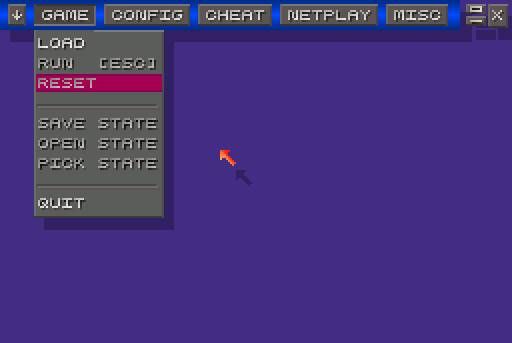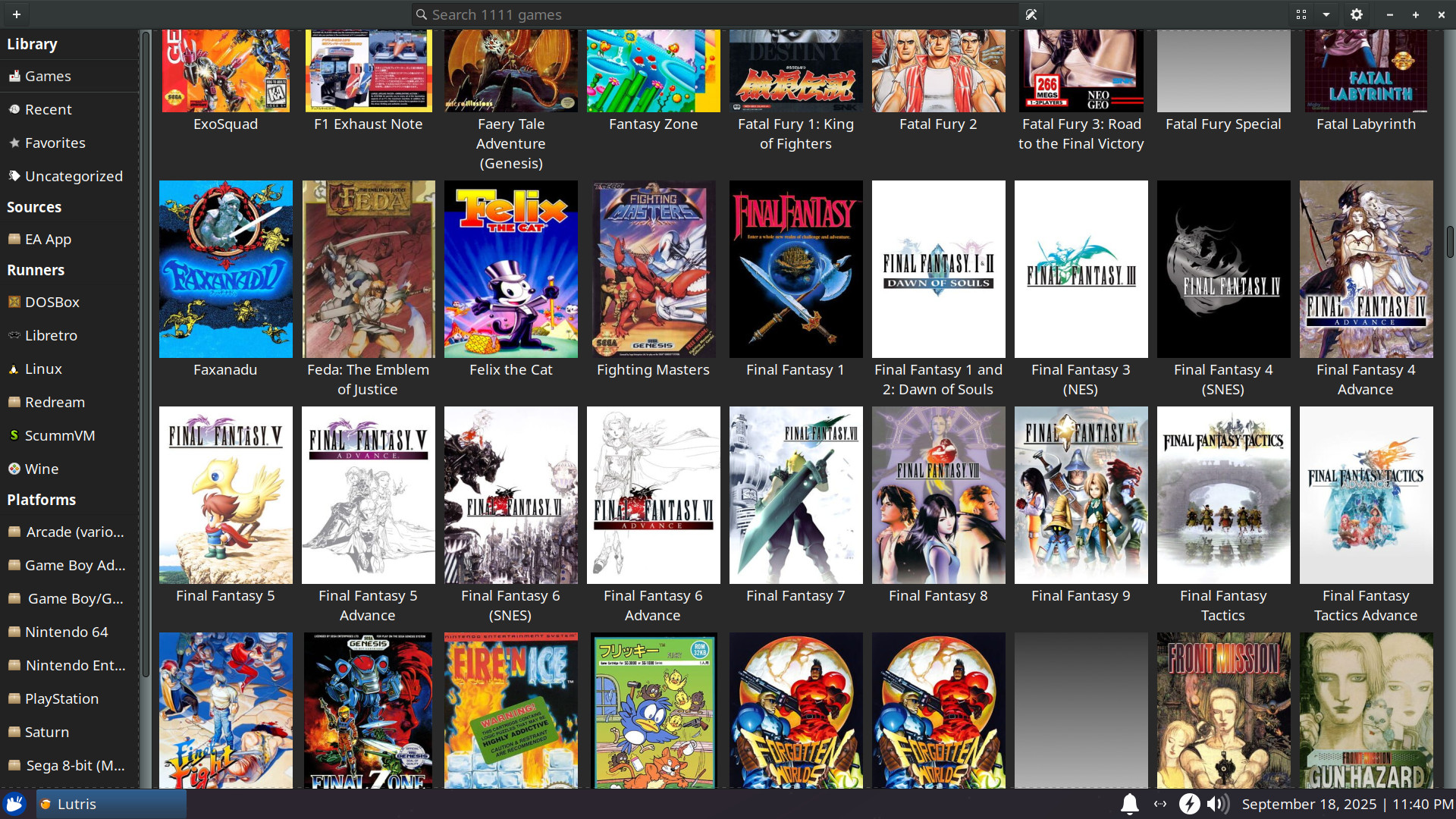You may know that I was ultimately a Sega kid during the 90s console wars, as I've spoken of my deep love for the Sega Genesis before. It was a really cool system and it made me feel like such a cool kid to play all the supposedly edgy games on it.
That said, by the late 90s I was pretty envious of kids who had a Super Nintendo. By this point things like the PlayStation and the Nintendo 64 were in high vogue, but I wasn't quite ready to enter the world of 3D games yet. My Dad refused to get me a Super Nintendo because it was outdated, and maybe he was getting tired of my constant obsession with games.
So one day in the Spring of 1999 I noticed a friend was playing Secret of Mana on his computer, and he had a variety of console games on it. I was curious and he mentioned "emulation" to me. I went home and looked it up on my own, because my friend refused to tell me anything about how to do it. Well, I'm nothing if not independently knowledge-seeking.

I started with ZSNES, which was once the most popular SNES emulator available, but has since found itself in a surprising obscurity for me. The game I wanted to play more than any other was Chrono Trigger (1995).
Emulation was in an early stage back then. The graphics layering was not perfected, transparency was not emulated so fog effects were solid on the screen. This caused me some frustration until I discovered the emulator supported disabling various graphic layers, which in turn started my learning of how videogames were actually put together.
There also wasn't any sound. Which is half the reason the SNES is so well remembered (though I think the grungy harshness of the Genesis was well placed in the early 90s and holds up). I played through Chrono Trigger with these restrictions, and it was still everything I had ever hoped for.
From this I got into all kinds of emulation, Genesis and NES, finding myself experiencing all the games I found myself missing or perhaps never had a chance to play. As I went into high school, I found myself experiencing a lot of the things I'd wished for as a silly kid.
Back in those days, it could often be a challenge to find ROMs for some of the more obscure games. But I got good at combing the corners of the internet for everything I became aware of.
Over time, emulators became better. Sound started working, graphics were perfectly emulated. It became indistinguishable from the actual console.
After a couple years of getting the hang of emulating old console games, I branched out to arcade games, starting with Capcom System games. Capcom used a very different chipset than other arcade games, and had dedicated following that developed special emulators in order to smoothly run those games. I didn't really understand how MAME worked, the idea of BIOS files and the like went over my head at the time.
Around this time in early high school I got into playing a lot of Japanese games. I was very into Gundam you see, and all of its games were never localized. I learned a little bit of kanji, but mostly I learned my way around these games by trial and error. My collection of games in Japanese was at times larger than those in English.
This is a good time to also add that I got really into save scumming. The ability to save and load a state in these old games allowed me to play them to completion in a way that had never been available to me before, it allowed me to explore and was the only way I could play some of these games that were not in English. Some purists see this as a travesty, but I think this is where I fell in love with the concept of accessibility.
I stagnated at this stage for a long time. I moved around a lot and found myself in Arizona. I learned how to emulate old DOS games around 2008, when I was desperate to play Wing Commander again, and learned a lot about drive mounting and file system relativity.
Around Christmas of 2010 I got into PlayStation emulation in order to play some Japanese games I had always wanted to play but found impossible to find stateside. I was able to finally play SD Gundam: G Generation F which I had been so eager to play since 2000. It was everything I hoped it would be.
I went to university soon after, starting at the very beginning of 2013. I decided it was time to put away childish things, and so I went to Columbus without any games on my laptop.
I came home to visit for Spring Break, and on the first night I was back, I started up Sonic the Hedgehog. The sound of the SEGA logo filled me with an elation I rarely find outside of meeting old friends or finding new lovers. As I proceeded through the first level, I found myself in tears.
I decided it was imperative for my health that I keep my games with me and make time for them. I had found myself missing a huge part of myself from just a couple months away from them.
As undergrad continued on, I started inviting people over to play some of these old games, which were now being called retro, along with a healthy dose of heavy drinking.
It struck me as strange that these games would be relegated to the label of "retro." When did they become retro, I wondered. Games that used to be legendary, ubiquitous in the popular landscape were now things that nobody had ever heard of outside of the absolutely most famous of them. And even then, most folks had only heard of them. I was bewildered that nobody around me had ever played Chrono Trigger.
When I was living in Arizona, consumed by loneliness in the later 2000s, I did notice that nobody else played them anymore. Part of me found solace in that. When I was growing up, many of the shitty children I shared my childhood with would often bully me over games, everything from petty gatekeeping to outright violence over Mario Kart. It was comforting that now they were just mine.
But that comfort became a loneliness in itself in the 2010s. I introduced whoever I could to the most famous games, the Final Fantasies and Phantasy Stars, with the occasional semi-obscure Illusion of Gaia or Breath of Fire in there. But mostly they were a novelty to folks, not terribly long lasting in memory.
And then the nostalgia industrial complex rose up. Nowadays you can find lots of old games, rereleased on corporate emulators built on the hard work of the open source movement. Marketing has painted freelance emulation enthusiasts like myself as crude pirates. But you still can't find all of them.
The limitations of the legal landscape prevent Sonic 3 from ever being rereleased in its original format. You won't find certain classic Japanese titles being suddenly localized very often. I should note also that many of those classic Japanese games have been given translations by the fans.
The nostalgia boom of classic games feels to me like reanimating a corpse. And furthermore, the vast majority of the original developers are getting zero benefit to this necromancy. It's just another example of the tyranny of intellectual property as employed in this political sphere.
I suppose I can take some solace that many of these games are finding new audiences. I still think it bizarre when some 12 year old on the internet mentions they collect original cartridges to play on the original hardware. I definitely prefer emulation to the original hardware myself, I've been in it long enough and early enough that my nostalgia is dominated by it anyway.
I could probably turn this into a ramble about the importance of an open internet and the bigger importance of an open culture undominated by large financial interests, but those kinds of screeds tire me.
Ultimately, I guess they are retro games, even if I never really stopped playing them. Is that the nature of getting old? Finding the world moving past you? Then again, it's not like I exclusively play old games. I've kept up with some of the big names, though there's entirely too many these days to keep up with them all. The indie game landscape is a vast goldmine right now.

So I continue on with my adventures in emulation. In 2019 I switched to Linux and learned how to get a bunch of new emulators running there primarily relying on Retroarch. I got into emulating old Windows games from the 90s using both WINE and virtualbox, which in turn taught me a lot about architecture and virtual machine environments.
I started using the Lutris frontend to make them look nice and pretty and organized and only needing to launch from one place. I started distributing these games on old laptops to friends, ostensibly to promote familiarity with Linux, but in actuality just to share these wonderful old games with as many people as I could.
You might be able to guess how I ended up becoming a natural IT person in all this.
These days I play fairly often. Usually when the weather is colder and there's less incentive for me to step outside. It's a nice evening to pop a weed gummy and just veg out on some awesome old times.
I occasionally invite someone over to peruse my collection and see if anything strikes their fancy, most prominently as of late a lovely person who coincidentally shares a few of my favorites from childhood.
Nostalgia is a powerful drug as you probably know. Anyone reading this I suspect has a nostalgic vice of one kind or another. To me though, these games have been a constant companion throughout my entire life. Is it nostalgia if it never left?
That's probably too heavy a question for a ramble about all the videogames I've pirated.
In any case, I hope to keep playing them for the rest of my life.